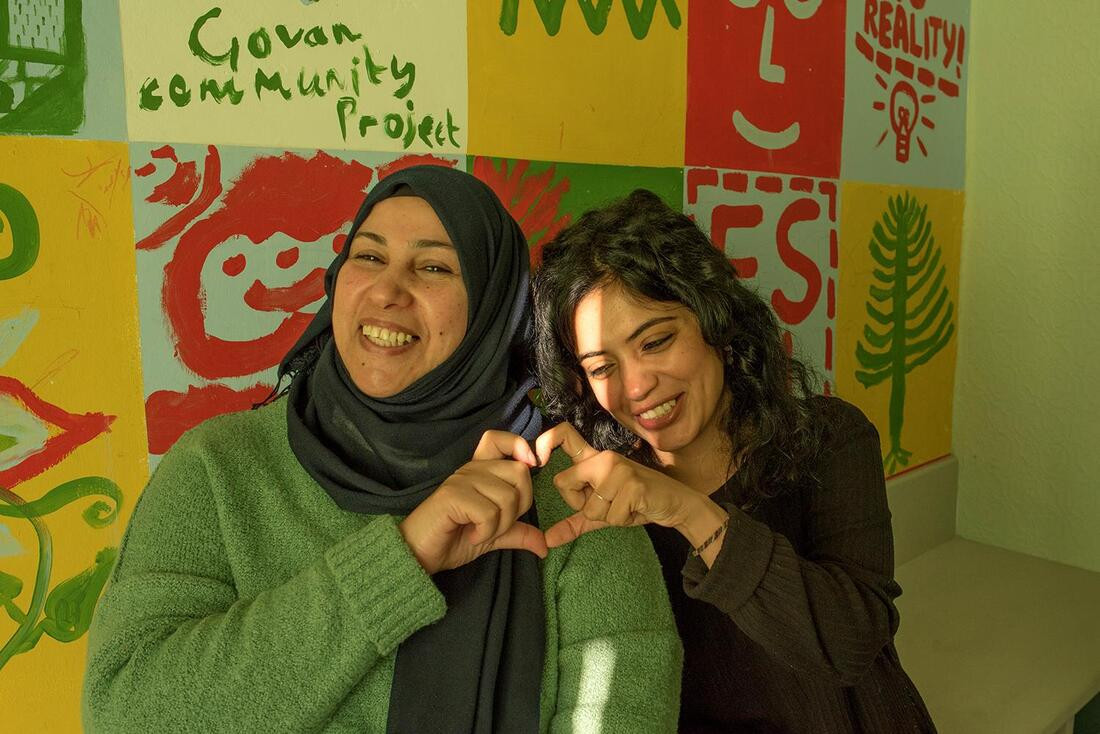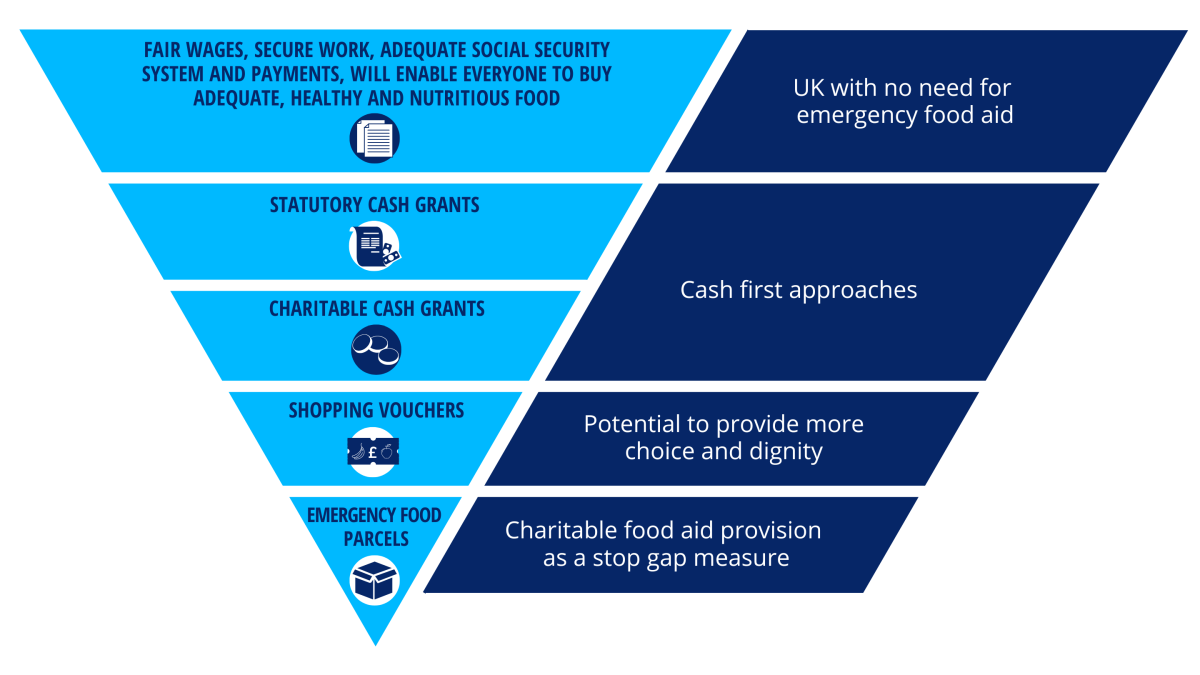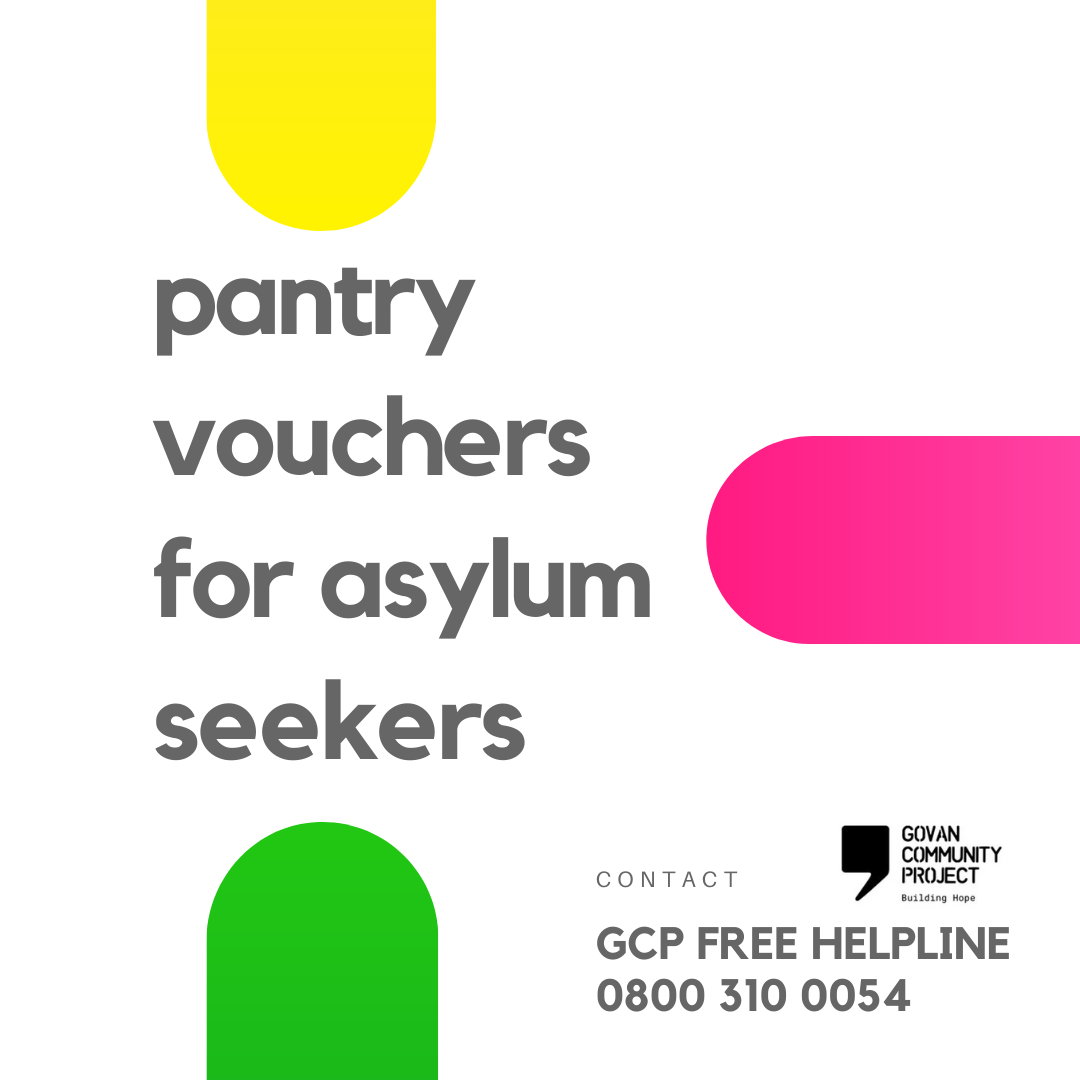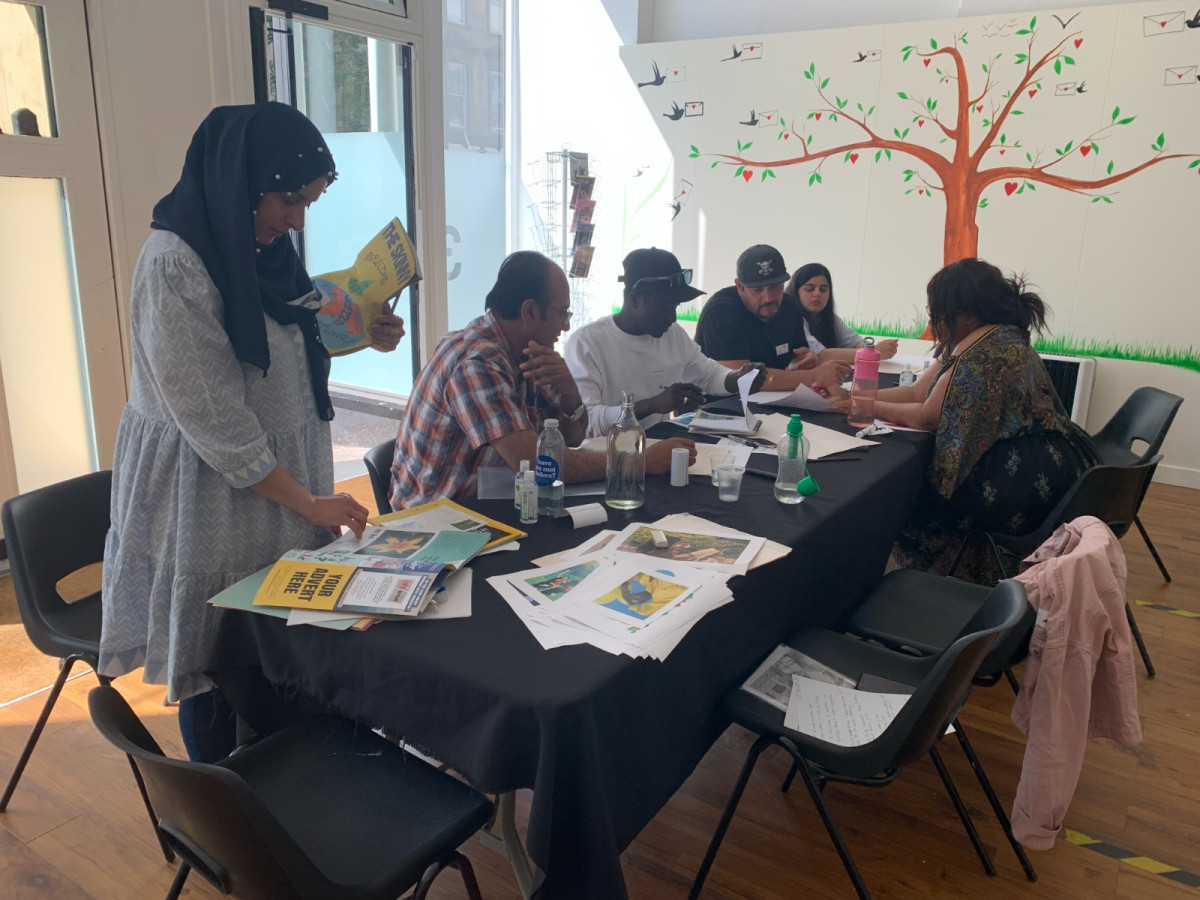
Govan Community Project members having fun
FInd out more: https://www.govancommunityproject.org.uk/
Govan Community Project is a community-based organisation working in south-west Glasgow. We support the diverse communities in the Greater Govan area, particularly asylum seekers and refugees. Our purpose is to achieve social justice by building a strong community based on equality, mutual respect, support, and integration. Our activities include an advice and advocacy casework service for people in the asylum process, social groups, ESOL classes, co-production projects and, currently, vouchers to local pantries and food hubs in Glasgow.
In the past years our way of supporting people to access food has shifted, primarily through the use of different kinds of vouchers. We’ve seen how different kinds of vouchers can enhance people’s dignity to different extents. This case study focuses on that learning.
Until the COVID-19 lockdown, GCP delivered a weekly fresh food distribution service, where we distributed around 45 prepacked food parcels to asylum seekers and refugees. The food distributed was surplus donated by supermarkets and local businesses.
In April 2020, GCP secured emergency COVID funding from the Scottish Government, and moved to providing digital supermarket vouchers. When this funding ran out in December 2020, the prospect of returning to the foodbank model felt like a step backwards (according to IFAN’s pyramid below,), both with its operational challenges and the lack of dignity for community members.

IFAN’s pyramid
During that time, community ‘pantries’ were popping up all over Glasgow, which offered £10-15 worth of food for £2.50 to their members. The pantries offered far greater choice than a foodbank, providing everything from fresh fruit and vegetables, dry goods, chilled and frozen foods, toiletries, cleaning supplies and baby essentials. Since £2.50 is still a prohibitive cost for many asylum seekers, we decided to offer ‘pay-it-forward’ vouchers to enable people in the asylum process to shop for free at their local pantry.

Pantry vouchers for asylum seekers
The idea was that this might build the infrastructure to eventually provide vouchers to local businesses and so move up the hierarchy of responses to food insecurity. Alongside this project, we provide emergency supermarket vouchers to people in the asylum process who are destitute, while we support them to access the relevant support.
Recently, we had the opportunity to deliver a short-term supermarket voucher pilot on behalf of the Scottish Government. The aim of this pilot was to reach communities experiencing extreme financial hardship, including people in the asylum process, and to gather data to support the plan to end the need for food banks
Supermarket vouchers
Our community members say that when they use a supermarket voucher, they feel a sense of normalcy and feel part of the community, because no one is the wiser about their financial situation or immigration status.
“Supermarket vouchers are unobtrusive in that they offer a degree of privacy/anonymity. There is no shame or stigma attached to vouchers, stigma which prevents some people from using food banks and accessing the support they need. ”
Pantry vouchers
With people in the asylum process receiving £40.81 a week, £2.50 represents about half of their daily budget. And since the pantries run on food surplus and cannot cater for all basic needs, our community members said that they would probably not use the pantry if they didn’t receive a voucher and would rather spend their £2.50 elsewhere. With community food pantries popping up all over Glasgow, we felt it was important that the membership model didn’t act as a barrier excluding people in the asylum process. Particularly as accessing the pantries also provides a way to connect people to their local community.
Attempting to preserve the privacy/anonymity of supermarket vouchers, we have a digital system for the pantry vouchers whereby people are sent an SMS ‘voucher’ which they present at the pantry. This means that they do not need to explain to pantry staff why they cannot pay, which might be the case for in-house pay-it-forward schemes.
Supermarket vouchers
Supermarket vouchers offer a greater degree of choice and control to meet individuals’ varying needs, since there is a greater variety available, including dietary restrictions and some cultural preferences, and also other essential items like over-the-counter medication, baby equipment and clothes. Also, most supermarkets are open 24/7 and so people can shop at their own convenience rather than navigating a maze of opening times and limits on the number of visits.
Pantry vouchers
The SMS voucher contains a link with information about the pantry model, opening times, directions, translated info etc so people know what to expect and how to plan their visit. This means info can be updated live so people can be informed of changes and feel in control. The pantry allows members to select what they would like from each category, providing more control than most food banks.
Supermarket vouchers
We have found that supporting people to get the food that meets their needs increases trust in the organisation and means they are more likely to engage with other activities and services.
Pantry vouchers
Understanding that it can take years to get a decision on an asylum claim, the pantry vouchers can be renewed any number of times until granted leave to remain.
Both pantry and supermarket vouchers are distributed by the casework team, who can support with asylum related issues and signpost to social groups or ESOL classes. And we have a ‘reverse referral’ process with the pantries whereby people in the asylum process who present at the pantry without a voucher are passed on to GCP’s casework team. Also, many of the pantries act as a hub where local community activities are advertised and information is shared.
A challenge we face continuously funding. Most funders value prevention and reducing dependency, but the nature of the UK asylum system means that support is likely to be necessary for a long term.
Due to lack of funding, we have had to take a step down on the hierarchy of responses to food insecurity. Since pantries run on food surplus, choice and dignity is invariably limited - now more than ever with the post-covid supply issues and the cost of living crisis.
A challenge with both the pantries and supermarket vouchers is access to culturally appropriate food. Since most food surplus comes from Fareshare and the main supermarkets, there is little food diversity. Some pantries have attempted to overcome this by buying stock wholesale but funders rarely fund the purchase of food.
We would like to explore opportunities to adapt the voucher model and engage with local businesses to provide vouchers but have not had the capacity yet.
GCP’s food distribution team took part in the Dignity in Practice Workshops in 2018-19 and this laid the groundwork for and informed all our work since then. Perhaps the most impactful was involving the then food distribution volunteers in adapting our services to enhance dignity in our practices. This grew into our ‘Food for All: Experts by Experience’ group, a co-production/peer research group focussing on food insecurity and the asylum process.

Govan Community Project, Food For All group in a meeting
“The challenges we face are immense and it can feel impossible to improve dignity when the real causes of these challenges are systemic and beyond our individual control. However, small acts of kindness have an immense impact to transform someone’s sense of dignity - and this is what each of us has the power to do.” – Author: Philippa Roloff, Food Projects Lead.